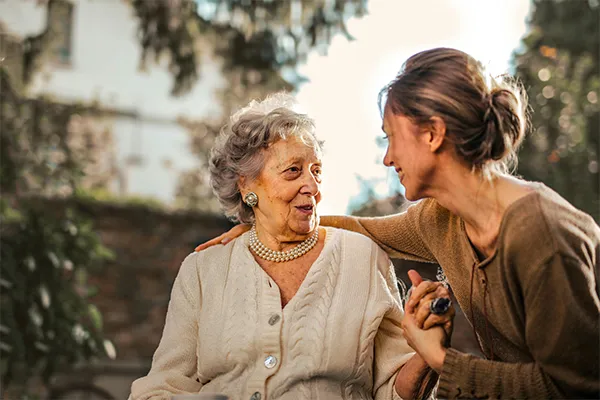
Challenges for Caregivers
When the term caregiver comes up, many people think about taking care of their aging parents. This is just one facet of caregiving, but a significant portion of family caregivers. Other caregivers may be taking care of disabled family members, people with special needs, or a growing population of people with dementia.
According to the AARP, 21% of people in the US are family caregivers, which is an estimated 53 million people who provide unpaid care. Almost one-fifth of those caregivers are providing care to people with Alzheimer's or other dementias. The Alzheimer's Association estimates that it equates to 19 billion hours of care valued at $413 billion. For all areas of caregiving, that is estimated to be over $1 trillion.
The challenges many families face include physical and emotional stress, financial burdens, and social isolation. The emotional burdens of caregiving can often lead to anxiety and depression. At a time when a support system is especially needed, caregivers often withdraw from social situations due to emotional and physical exhaustion. A wide spectrum of negative emotions, like anger, helplessness, frustration, and sadness, can build up and manifest in somatic symptoms as well. Women are disproportionately impacted by caregiving, providing about 1.5 times more work than men.
As therapists, it is critical to understand the unique burden of caregiving that your client may be experiencing. Is the person they care for living in their home, in the same town, or long distance? What are the cultural considerations of caregiving? If a family believes in multiple generations living within the home, they may value the caregiving experience as a part of their family system, but that does not mean that they won’t experience burnout or other emotional challenges. Did your client have to put a career on hold or give it up completely? Or alternatively, do they work full-time and provide care in their off-work hours? A comprehensive intake questionnaire would be helpful to understand your clients’ needs and circumstances related to caregiving.
So, what does a good caregiving assessment look like? In your first several sessions, it would be helpful to gather information in the following areas:
How did they become a caregiver, and what are they dealing with in their situation?
How do they feel about being a caregiver?
What is their physical health like, including mental health?
What strengths and support do they have? (emotional, social, and financial)
What are the consequences of caregiving for them? (loss of job, isolation, loss of time, physical or mental health issues, etc.)
Caregivers need a place to be able to process the complex emotions that come along with taking care of a family member. Particularly if the person has a terminal illness or dementia, understanding grief and how anticipatory grief will play a big role in their journey is critical. Being grief-informed will help you lean into the challenging conversations that come up with caregivers for elderly or terminally ill family members. EngagedMinds has several grief trainings along with a grief-informed professional certification taught by Kelly Daugherty.
